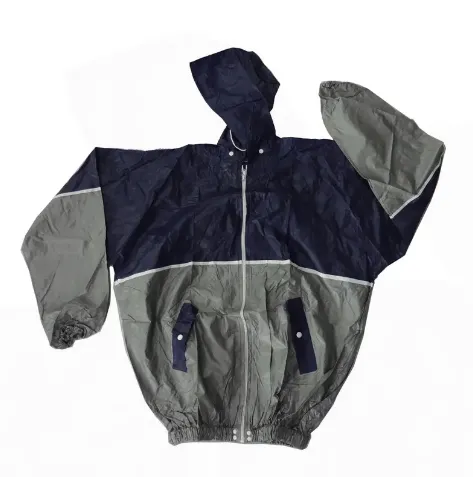Dec . 05, 2024 10:47 Back to list
The Difference Of Pvc Apron Compared To Other Materials
In today's fast-paced life, aprons, as a common work garment, are widely used in various fields such as catering, home cooking, and craft production. The material of the apron plays a crucial role in its functionality and comfort. Pvc Apron has gradually gained popularity in recent years due to its unique advantages, and compared to aprons made of other materials, it has significant differences.

Pvc Apron has excellent waterproof performance
Traditional cotton or suede aprons are prone to getting wet and heavy when in contact with liquids, which affects their mobility. And the surface of Vest is smooth, which can effectively prevent liquid penetration, so that users will not feel uncomfortable during cooking, cleaning and other work. Meanwhile, PVC aprons are also easy to clean, usually only requiring wiping with clean water to remove dirt, which is undoubtedly a great convenience for work environments that require frequent cleaning.
The durability of PVC Apron far exceeds that of other materials
Compared with cotton aprons, PVC is less prone to tearing and wear, has good acid, alkali, and oil resistance, and can maintain stability in various chemical environments. This makes Apron Wiht Long Seleeve an ideal choice in some special industries such as chemical and pharmaceutical industries. In addition, PVC aprons have a long service life and can reduce the need for frequent replacement, saving resources and expenses.
Pvc Apron also has its shortcomings
Firstly, in terms of breathability, PVC material often has poor breathability compared to natural fibers such as cotton, and prolonged wearing may cause a feeling of stuffiness and heat in the body. Traditional material aprons can provide better comfort and are suitable for long-term daily use. Secondly, Safe Vests may experience softening in high-temperature environments, so caution should be exercised when selecting them for high-temperature cooking and industrial use.
Considering environmental issues, the production and processing process of Pvc Apron has sparked some controversy
Although the durability of PVC aprons reduces resource waste, their non degradable nature makes them a significant environmental burden at the end of their lifecycle. Therefore, when choosing an apron, consumers need to consider factors such as usage, frequency, and environmental impact comprehensively in order to make informed decisions.
In summary, Peva Apron is superior to traditional cotton or other material aprons in terms of waterproofing, durability, and ease of cleaning, but relatively lacking in breathability, comfort, and environmental friendliness. Consumers should weigh the advantages and disadvantages of different materials based on their specific needs and usage scenarios when choosing aprons, and make the most suitable choice for themselves. Regardless of the material chosen, the ultimate goal of the apron is to provide users with better protection and convenience.
-
Work Vest Solutions for Safety
NewsJul.02,2025
-
Roles of Mortuary Bag Manufacturers
NewsJul.02,2025
-
Motocycle Rainwear Guide
NewsJul.02,2025
-
Guide to Aprons With Seleeve for All Ages
NewsJul.02,2025
-
Essential Uses for All Cover Apron and Kid Apron
NewsJul.02,2025
-
Essential Guide to Post Mortem Bags and Shroud Kits
NewsJul.02,2025





